Expert Committee on Drug-Device Combination Products (DDCP)
Generic DDCPs, including product classes such as inhalers, injectors, and transdermal systems, require careful design and testing to ensure that patients, caregivers, or healthcare providers can use them safely and effectively without additional training. The ability to assess generic DDCP human factors (HF)—such as use environment, user population, and user interface—is critical to ensuring that generic versions can be substituted for their reference products
The Center for Research on Complex Generics (CRCG) has formed an Expert Committee (EC) on Drug-Device Combination Products (DDCP), comprised of experts from industry and academia to identify significant scientific and regulatory challenges in generic DDCP development and provide guidance on designing research and developing methodologies that assess the comparability of DDCPs. The areas of focus will include device design features, HF study design, device operability, user interface design in the context of demonstrating equivalence of generic DDCPs, labeling, and task analysis.
The EC will provide guidance on designing research and developing methodologies that assess the comparability of DDCPs. The research and methodologies developed with EC input are intended to support the generic drug industry in demonstrating equivalence from a user interface perspective, ensuring that generics meet the same standards of safety and efficacy as their reference counterparts. The EC will work collaboratively with CRCG and the FDA to support generic DDCP development approaches.

Co-Director of CRCG, Professor of Pharmaceutical Sciences, Ralph F. Shangraw/Noxell Endowed Professor, Industrial Pharmacy and Pharmaceutics, University of Maryland
Dr. James Polli is a Ralph F. Shangraw/Noxell Endowed Professor in Industrial Pharmacy and Pharmaceutics at University of Maryland. His research interest is oral drug absorption, involving laboratory and clinical research. He has served as the advisor to 25 Ph.D. graduates. He is co-Director of the University of Maryland Center of Excellence in Regulatory Science and Innovation and the Center for Research on Complex Generics, each an FDA-funded collaborative agreement with the Agency. He is Director of the online M.S. in Regulatory Science program. He is a fellow of the American Association for Pharmaceutical Scientists (AAPS) and served as an editor of Pharmaceutical Research for 12 years. He is the 14th recipient of the American Pharmacists Association Takeru Higuchi Research Prize. He was the recipient of the 2024 American Association of Colleges of Pharmacy Volwiler Research Achievement Award, the 2022 AAPS Global Leadership Award, and the 2021 TOPRA Education Award. He is a member of the University of Maryland General Clinical Research Center Advisory Committee and the University of Maryland institutional review board (IRB).

Co-Director of CRCG, Professor of Pharmacy, Department of Pharmaceutical Sciences, Biointerfaces, College of Pharmacy, University of Michigan
Dr. Anna Schwendeman is a Professor at the Department of Pharmaceutical Sciences at the University of Michigan. Her research focus is on optimization of high-density lipoprotein (HDL) nanoparticles for treatment of atherosclerosis, sepsis, and drug delivery purposes. In 2016, she co-founded a company EVOQ Therapeutics (www.evoqtherapeutics.com) focused on the use of HDL Nanodiscs for delivery of personalized neoantigen cancer vaccines. Dr. Schwendeman received her B.S. from Moscow Institute of Physics and Technology and Ph.D. in Pharmaceutics from The Ohio State University. Prior to starting her academic career in 2012, Dr. Schwendeman spent 12 years in the pharmaceutical industry at Cerenis Therapeutics, Pfizer, and Esperion Therapeutics. She was involved in discovery and translation HDL drugs to clinical trials. She successfully submitted FDA INDs for seven different products including nanoparticles, liposome, recombinant proteins, peptides, and small molecules. Her laboratory’s research in regulatory sciences is focused on analytical characterization of liposomes, polymer microspheres, peptides, and biosimilar products. She is co-Director of FDA sponsored Center for Research in Complex Generics (http://www.complexgenerics.org). Dr. Schwendeman is an Associate Editor for Nanomedicine NBM and Eur. J. Pharm and Biopharm.

Associate Director, CRCG, Department of Pharmaceutical Sciences, University of Michigan, College of Pharmacy
Dr. Visha Krishnan has over 15+ years of experience in life science research, technology commercialization, innovation strategy, R&D prioritization, pre-clinical product development, and project management. Prior to joining the Center for Research on Complex Generics (CRCG), she was the CEO of AZ Solutions, LLC, a startup company which developed antimicrobial products. She was also a Senior Life Science Consultant at Foresight Science and Technology, an Entrepreneur-in-Residence at Spartan Innovations (Michigan State University Foundation) and the Director of Market Discovery at The SearchLite where she assisted several early/mid-stage companies, investors, incubators, and universities with their technology commercialization and product development strategies. While on the licensing team at Henry Ford Health System Innovations and at University of Michigan, she managed an extensive portfolio of inventions and two life science innovation funds worth several millions and a diverse portfolio of pre-clinical innovation projects with primary focus on drug development. These projects led to several million in follow-on funding and several inventions, patents, and industry partnerships. Additionally, she managed their Corporation Innovation projects and business development efforts securing millions in funding. Visha holds a B.Tech in Industrial Biotechnology from Anna University, India and a Ph.D. in Chemistry (Chemical Biology) and postdoctoral training from the University of Michigan. She manages the U.S. FDA funded CRCG focused on increasing access to safe and effective generic drugs and is also a Consultant for startup companies developing new drug products.
Physician, DTP I, ORS, OGD, CDER, FDA
Dr. Betsy Ballard is a physician on the Device Evaluation Team within the Division of Therapeutic Performance at the FDA’s Office of Generic Drugs. In this role, she reviews complex drug-device combination products during the pre-ANDA phase and contributes to the development of product-specific guidances, to support the development and approval of generic combination products. She joined the FDA in 2010 and has been a reviewer in CDRH and CDER Office of New Drugs before coming the Office of Generic Drugs in 2020.
Prior to joining the FDA, she was a board-certified general surgeon in private practice treating patients with a wide range of breast problems and was a trauma surgeon at a Level II Trauma Center in state. During her time in practice, she sat on many committees at the hospital level ensuring quality care for patients, served on the county executive’s Advisory Health Board on matters related to disparities in health care for county residents, and was President of the Montgomery County Medical Society.
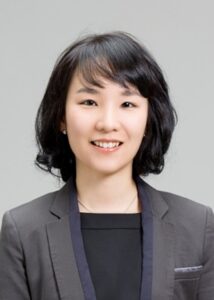
Pharmacokineticist, Device Evaluation Team, DTP I, ORS, OGD, CDER, FDA
Dr. Shinae Kim is a Pharmacokineticist on the Device Evaluation Team within the Division of Therapeutic Performance at the FDA’s Office of Generic Drugs. In this role, she reviews complex drug-device combination products during the pre-ANDA phase and contributes to the development of product-specific guidances, which provide recommendations to support the development and approval of generic combination products.
Before joining the FDA, Dr. Kim spent over nine years in research institutions and academia, where she focused on the development of medical diagnostic devices and novel technologies for real-time health monitoring and diagnosis. She holds an M.S. and Ph.D. in Electrical Engineering and Computer Science from Seoul National University in Korea and completed her postdoctoral research in chemical and biomedical engineering at the Georgia Institute of Technology.
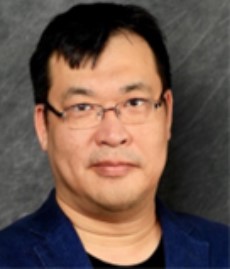
Director, DTP I, ORS, OGD, CDER, FDA
Dr. Markham C. Luke serves as FDA Supervisory Physician (Dermatology) and Director of the Division of Therapeutic Performance I (DTP I) in the Office of Research and Standards, Office of Generic Drugs at FDA. DTP I is responsible for facilitating pre-application development of generic drugs by conducting and promoting regulatory science research to establish standards to ensure therapeutic equivalence of new generic drug products. Markham has an M.D. and a Ph.D. in Pharmacology from Johns Hopkins University and completed his dermatology residency and fellowship at Washington University, St. Louis, MO and the National Institutes of Health, Bethesda, MD. He is an Associate Professor at the Uniformed Services University of the Health Sciences, Bethesda, MD with research interests in dermatopharmacology, clinical pharmacology, clinical study design and endpoints assessment (including patient-reported outcomes) for medical, surgical, and aesthetic products. Markham has been at FDA since 1998 serving various roles, including as the Lead Medical Officer for dermatology drugs, Chief Medical Officer and Deputy Director for the Office of Device Evaluation in the Center for Devices and Radiologic Health, and as Acting Director for Cosmetics in the Center for Food Safety and Applied Nutrition.

Associate Director for Science & Chief Scientific Advisor, ORS, OGD, CDER, FDA
Dr. Sam Raney is the Associate Director for Science and Chief Scientific Advisor in the FDA’s Office of Research and Standards and Office of Generic Drugs, where he oversees the research portfolio of FDA’s generic drug research program. He has over 30 years of experience in pharmaceutical drug development, specializing in topical and transdermal products, and producing numerous research manuscripts, review articles, book chapters and patents. He has been a researcher and adjunct professor within academia, was the longest serving Chair of the AAPS Topical and Transdermal Community, has been a principal or sub investigator on over 400 pharmaceutical product studies, has held senior management roles in industry, serves on multiple expert committees and panels for the U.S. Pharmacopeia, and is frequently invited to speak at scientific meetings around the world. Dr. Raney holds a Bachelor’s Degree in Molecular Biophysics & Biochemistry from Yale University, and a Ph.D. in Biochemistry & Molecular Biology from the University of British Columbia in Canada.

Founder and CEO, Ergonomics Factory
Dr. Andreas Baier holds a Ph.D. in Human Factors Psychology and is the founder and CEO of Switzerland’s leading human factors consultancy for MedTech and Pharma. He combines academic rigor with hands-on expertise, with credentials in Design Thinking from MIT and certification as an International Regulatory Affairs Manager from TÜV SÜD. Andreas has led over 250 drug delivery development projects with global pharmaceutical companies, driving innovation and safety to enable patient-centric solutions and successful product launches.

Head of Human Factors (Consulting), Team Consulting
Mr. Jonathan Bainbridge is the Head of Human Factors (Consulting) at Team Consulting; he’s responsible for managing Team’s independent human factors services and the planning, implementation, and reporting of human factors research during the design and development of medical devices, particularly in drug delivery and combination products. His work involves early-stage exploratory and formative evaluations, through to rigorous validation tests in accordance with regulatory requirements for human factors.
He has over 22 years’ experience working in human factors consultancy and over 14 years in the medical device sector. Jonathan has moderated over 1,200 interviews for various medical devices with caregivers, healthcare professionals, patients and healthy volunteers in the UK, US, India, and EU.
He has an MSc in Ergonomics/Human Factors from Loughborough University, UK as well as a BA (Hons) in Industrial Design and Technology also from Loughborough University, UK. He is also a registered member and has chartered status with the Institute of Ergonomics and Human Factors (IEHF) in the UK and he represented BSI during the development of the ISO standard – ISO 23217:2024 Injection systems for self-administration by paediatric patients — Requirements and guidelines for design.
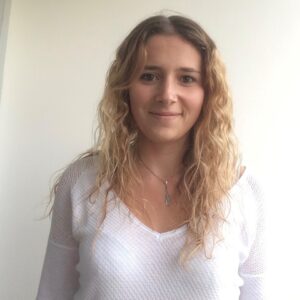
Clinical and Human Factors Manager, Advanced Drug Delivery Systems Platform, BD Medical Pharmaceutical Systems
Ms. Laurie Brunet-Manquat, is the Clinical and Human Factors Manager for Advanced Drug Delivery Systems (ADDS) Platform within BD Medical Pharmaceutical Systems. Laurie achieved a master’s degree in health engineering specialized in clinical research in 2018 at Grenoble, France. She worked for 2 years as Clinical Project Manager in a private company specialized in electronical Clinical Outcome Assessment (eCOA) prior to join BD in 2020. At BD, Laurie is the Medical Affairs Manager leading Autoinjectors, Pens and Safety platforms.
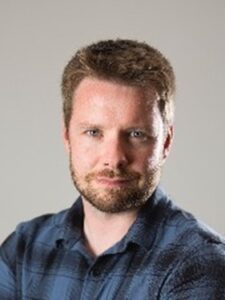 Senior Manager, Human Factors, Teva Pharmaceuticals
Senior Manager, Human Factors, Teva Pharmaceuticals
Mr. Oliver Byrne is a human factors engineer with over 10 years of experience in the pharmaceutical, medical device, and energy sectors. As a human factors senior manager at Teva Pharmaceuticals, he leads development projects, ensuring compliance with global regulations and best practices, and supports junior human factors engineers who are new to the field of human factors and ergonomics.
Oliver excels in devising strategy to ensure user needs are at heart of the design and development process of large international scale projects. He has led human factors programs for several successful submissions across multiple markets including, US, EU, and Rest of World. These submissions have included generic, biosimilar and innovative combination products.
Before joining Teva, Oliver applied his human factors knowledge in the energy sector where he ensured decommissioning of large infrastructure was completed in compliance with safety and technical standards. He also delivered human factor programs within the medical device sector where he ensured the user need was central to the design of wound care products. Oliver is enthusiastic about developing others in the field of human factors and currently leads a small team of junior human factor professionals.
Oliver holds a B.Sc. in Psychology, a PGc in Clinical Psychology, and a M.Sc. in Ergonomics. Oliver holds design patents and has presented at academic forums and human factor conferences.
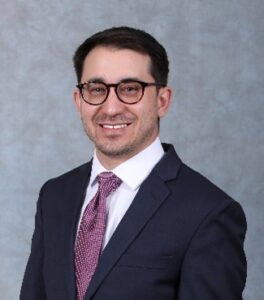
Acting Lead Physician, DTP I, ORS, OGD, CDER, FDA
Dr. Andrew Clerman is a Lead Physician (acting) in OGD’s Division of Therapeutic Performance I (DTP I) in the Office of Research and Standards. Andrew leads the Drug-Device Combination Product Team in DTP I, overseeing both pre-ANDA interactions with industry regarding drug-device combination product issues and the GDUFA research activities to support drug-device combination product development. Additionally, Andrew provides clinical subject matter expertise across a range of generic drug development areas. Prior to joining OGD, Andrew was a clinical reviewer in FDA’s Office of New Drugs. He received his M.D. from George Washington University and a Ph.D. in Molecular Microbiology and Immunology from the University of Maryland, Baltimore. He completed post-graduate clinical training at the University of Maryland Medical Center/Baltimore Veterans Affairs Medical Center and maintains clinical board certifications in Internal Medicine, Pulmonary Disease, and Critical Care Medicine.
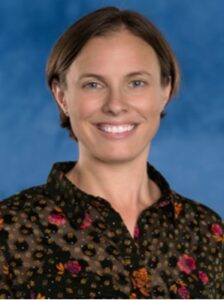
Associate Professor, University of Detroit Mercy
Dr. Megan Conrad is an Associate Professor of Mechanical Engineering at the University of Detroit Mercy. Her most recent research focuses on evaluating user interface design features and improving human factors assessments of drug-device combination products (DDCPs). Through an FDA-funded project, her research team developed a user interface design taxonomy and proposed modified comparative use human factors methods for gaining FDA approval of generic DDCPs. Dr. Conrad’s other research interests center around assessing human performance in healthy and disabled populations as it pertains to therapy, work, and product design. She aims to identify device design features and therapeutic techniques allowing individuals to remain independent at home and work. Dr. Conrad earned a PhD in Biomedical Engineering from Marquette University. She also holds an MS in Systems Engineering from UPenn and a BS in Industrial Engineering from Marquette. She has received extramural funding as PI or co-I on projects supported by the AHA, FDA, NIH, and NSF. At Detroit Mercy, she leads the Eick Center for Assistive Technology, acts as Director of the Biomedical Design Program, and teaches courses related to Biomedical Engineering, Human Factors, and Product Design.

Co-Founder and Director, Rebus Medical
Dr. Ian Culverhouse is Co-Founder and Director at Rebus Medical, with over 15 years of industry experience and over a decade dedicated exclusively to medical device and combination product human factors. He holds a B.Sc. and M.Sc. in product design and a Ph.D. focused on early-stage interactive prototyping. Ian has led human factors work across a wide range of combination and drug delivery devices, including pre-filled syringes, auto-injectors, inhalers, and pen injectors. He has conducted countless usability studies and threshold analysis in support of FDA and CE regulatory submissions, spanning therapeutic areas such as chronic respiratory disease, diabetes, and rare diseases. Ian has supported many of the world’s leading pharmaceutical companies with human factors expertise, bringing a commercially grounded approach rooted in a deep understanding of the product development process and global regulatory expectations. He is also a contributing author to AAMI publications and a regular speaker at international human factors conferences.

Principal, Industrial Designer, Humanfactors Design Works
Mr. Reed DeWinter is an award-winning industrial designer with over 20 years experience researching and developing products for all facets of the human body. As head of product development for Humanfactors Design Works, a product development firm he co-founded 2003, he has helped bring user-centric products to market and developed intellectual property for startups, research institutions, and multi-national firms.
His research has taken him from numerous surgical observations and cadaver labs for developing orthopaedic instrumentation suites to 3D-scanning children’s facial geometry to design more effective respiratory products. Mr. DeWinter has interviewed 7- to 70-year-olds about the challenges of living with diabetes and managing the intimidating methods of subcutaneous drug delivery. He has carefully crafted props and questionnaires for intensive focus groups of middle-aged women to discover the intricacies of their skincare regimens for Unilever. He has tracked down an international, rag-tag group of researchers, engineers, and tinkerers in smart implant technology to help Stryker build a strategy for navigating this market.
As an industrial designer, Mr. DeWinter frequently encounters unusual design problems. He has developed concepts to enable astronauts to exercise in zero gravity environments. He’s been conscripted into the enigmatic world of government grant agencies, helping to identify, write, and execute grants for developing an ecosystem of products based on an alternative tactile alphabet to braille. He has lost sleep worrying about how to help reverse the dwindling mating habits of Guatemalan tree frogs for the Museum of Natural History of New York.
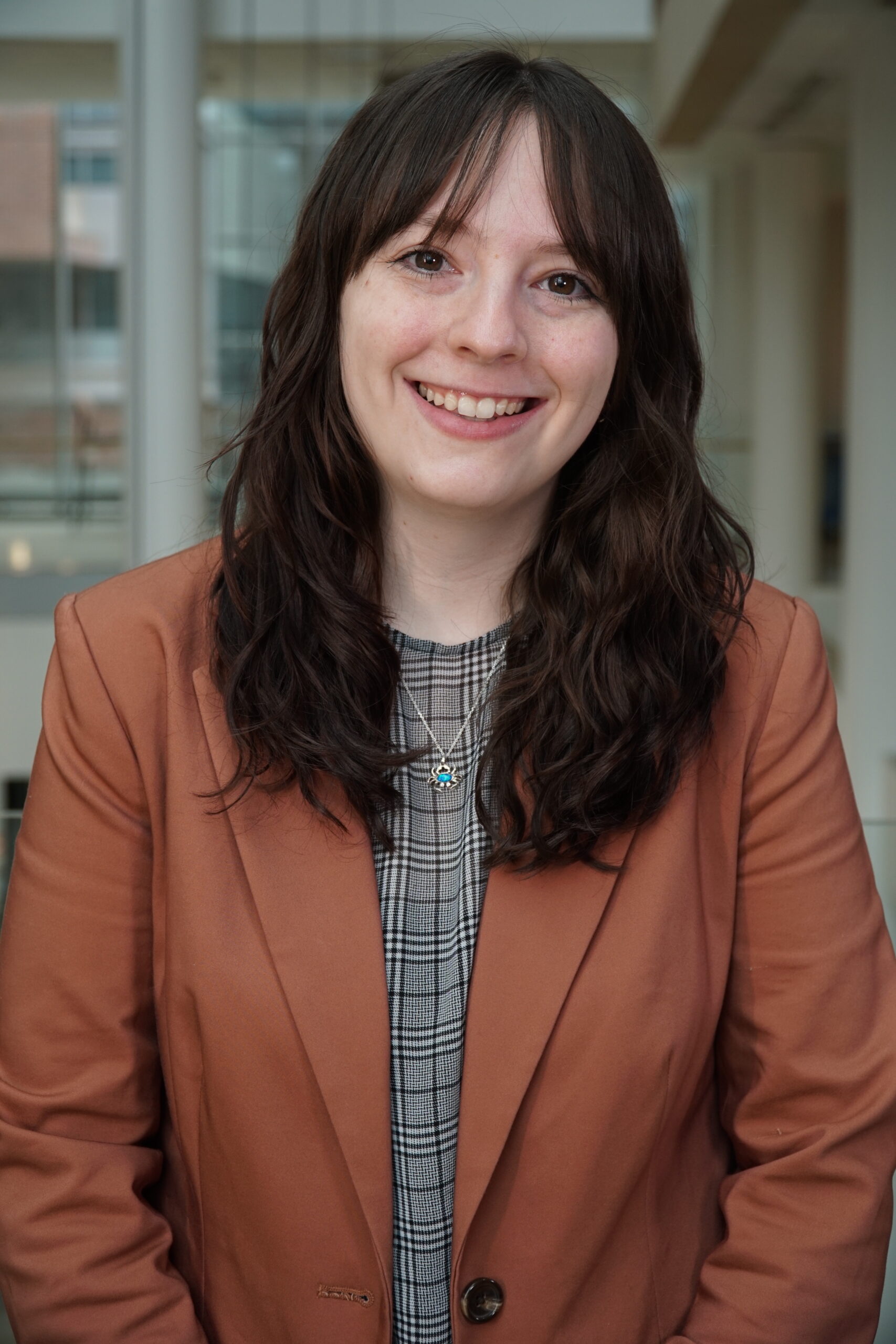
Research Assistant Professor, University of Maryland School of Pharmacy
Dr. Allison Dunn is a Research Assistant Professor at the University of Maryland School of Pharmacy and an affiliate of the Center for Translational Medicine. She holds a B.S. in Bioengineering from the University of Maryland, College Park, and both a Doctor of Pharmacy and an M.S. in Pharmacometrics from the University of Maryland, Baltimore. Her work focuses on applying pharmacometric approaches to problems in clinical practice and drug development. Broadly speaking, her research interests revolve around advancing the field of model-informed drug development, including in the context of drug-device combination products. Past projects have included the development of model-informed bioequivalence strategies for long-acting injectables, the characterization of pharmacokinetics in special populations such as older adults and pediatric patients, and the optimization of dosing regimens in oncology and transplant settings.

Associate Director, Human Factors Manager, R&D at Teva Pharmaceuticals
Ms. Louise Dunphy has over 15 years of experience in Human Factors/Usability Engineering for combination products and medical devices across the US and EU. As Associate Director and Human Factors Manager at Teva Pharmaceuticals, she leads a global Human Factors team, providing strategic guidance on Human Factors and Usability Engineering best practices.
Louise has a keen interest in user research and patient-centric design. Her expertise includes extensive knowledge in human factors/usability engineering principles, best practices, and international usability standards such as FDA guidance and IEC 62366. Louise actively serves on the IPAC-RS panel and her contributions to the field include co-authoring papers on device mechanics and innovative technologies.
Louise holds an M.Eng.Sc. in Innovative Technologies from Waterford Institute of Technology and a B.Eng. in Biomedical Engineering from the University of Limerick.

Principal Human Factors Engineer, Teva Pharmaceuticals
Ms. Sophie Edmonds-Allen is currently a Principal Human Factors Engineer within the Combination Products and Devices team at Teva Pharmaceuticals.
Sophie brings a wealth of expertise developed through 10 years of applying usability engineering to complex drug-device combination products and medical devices for submission in US and EU markets. This expertise covers generic and novel injectables, inhalers, and contraceptives as well as usability studies and Comparative Use Human Factors (CUHF) Studies.
In addition to her work at Teva, Sophie is Chartered in Human Factors/Ergonomics (UK chartered body CIEHF) and volunteers at British Standards Institution (BSI) as an active member of ISO 62366 ‘Application of usability engineering to medical devices’.
Sophie earned an undergraduate degree in Industrial Design and Technology with Professional Practice (First Class Honours) from Brunel University and pursued a Master’s degree in Human Factors/Ergonomics (Merit) from Loughborough University.

Independent Consultant/Contractor, Product Development Expert
Mr. Jim Isaacson is currently an independent consultant / contractor, with over 36 years of experience in the Medical Device industry. He was most recently the Vice President of Quality and Engineering at Alucent Biomedical Inc, where he led the development of various drug coated balloon catheters into clinical trials, and also developed the Quality System to support the development of these combination (drug and device) products. Prior to Alucent, Jim was employed separately at JUUL Labs and Fresenius Medical Care in lead Quality roles, where he led teams in designing the companies’ entire product development / Design Controls processes. Both companies collectively experienced numerous subsequent FDA inspections with zero 483’s related to Design Controls.
Prior to these Quality roles, Jim worked extensively in R&D, working with such technologies as Renal Dialysis, Electrosurgical instruments, Iontophoresis non-invasive drug delivery, cardiovascular and pulmonary Oxygenators, and X-Ray.
His work experiences include extensive project management, personnel management, Design Controls, Design of Experiments, statistics, Human Factors and life cycle product management. He uses a market-driven business approach, with targeted creativity resulting in strong IP protection (co-inventor of 27 patents). He provides a unique balance of communication skills and customer interface experience with a strong technical background. His style is one of open, honest and direct two-way communication within any work environment.
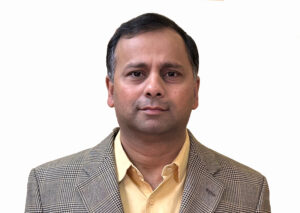
Senior Director & Head of Device Development and Device Regulatory, Cipla USA
Mr. Prashant Kakade is a Drug‐Device Combination Products Development & Commercialization expert, with a proven track record of taking products from concept stage through development milestones, global regulatory filings, approval and sustaining support. Prashant has worked on a range of drug device combination products in his >20 years career, with recognized expertise in Parenteral, Inhalation and Nasal drug delivery. As Head of Device Development and Device Regulatory Affairs at Cipla, Prashant is leading development of a large number of DDCPs (ANDA and NDA/BLA), while also working with crossfunctional teams to standardize and upgrade combination products practices. Prior to Cipla, Prashant held positions of increasing responsibility at Dr. Reddy’s Laboratories (leader of their Device CoE), Bristol Myers Squibb, Novartis/Sandoz, MAP Pharmaceuticals, Kos Pharmaceuticals and Aerogen. Prashant
holds Masters in Chemical Engineering from Cleveland State University, Ohio, USA. He has a number of publications/ podium presentations, and 6 patents (granted/ in process).

Head of Regulatory Devices, Sandoz
Dr. William C. Lamanna (Chris) received his Bachelor of Science at the University of Wisconsin (USA) before moving to Germany as a Fulbright Fellow. After completing his Ph.D. at the University of Goettingen in Germany, he dedicated himself to the treatment and diagnosis of rare disease at the University of California San Diego. Dr. Lamanna joined Sandoz in 2012 and has held various roles of increasing responsibility. As Head of Regulatory Devices, Dr. Lamanna leads a global team responsible for submission, approval and maintenance of devices and combination products across the Sandoz biosimilar and generics portfolio.
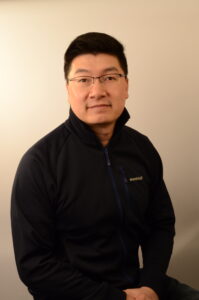
Global Leader, Human Factors, Insight by Nemera
Dr. Michael Lau has led Insight by Nemera’s global human factors team for the past 14 years, providing expert human factors consulting services in medical device design and development for pharmaceutical and medical device companies across the world.
Michael approaches human factors from a kinesiology and ergonomics perspective (University of Waterloo), and also from a engineering perspective, having obtained his Ph.D. in Industrial & Operations Engineering from the University of Michigan. Michael participates in human factors standards development, as an editor for the Human Factors in Healthcare journal, and speaks regularly at conferences and trade shows.
Under his leadership, Insight by Nemera has executed many successful human factors engineering programs for complex drug-device combination product submissions, including novel development, generics, and biosimilars. Michael is heavily involved in generic combination products design, development, and evaluation. Michael has designed and conducted several comparative use human factors studies and is very interested in making this process simpler and more efficient.

Founder & Principal, Kimpasi Inc.
Ms. Amy Lukau is a distinguished Human Factors and Usability Engineering leader with over 16 years of experience across biotechnology, pharmaceutical, medical technology and humanitarian sectors. Lukau is the Founder and Principal of Kimpasi Inc., is a global advisory and technical consultancy serving U.S., EU, NATO, UN and Global South stakeholders dedicated to building and restoring trust, elevating institutional performance and embedding accountability into the design and deployment of high stakes systems. Kimpasi Inc. stands as the only black and woman-founded consultancy dedicated to human factors engineering, regulatory compliance and humanitarian oversight. In an industry historically shaped without diverse leadership at the helm, Kimpasi redefines what authority, insight and ethical design look like-offering unmatched perspective rooted in lived experience, scientific rigor and global accountability.
Prior to founding Kimpasi, Lukau served as Senior Human Factors Lead at Kindeva Drug Delivery, where she led cross-functional efforts across Global R&D and New Product Development. In this role, she was responsible for the design, evaluation, and validation of advanced proprietary drug-device combination platforms, including autoinjectors, inhalation products, nasal sprays, microneedles, and transdermal systems. Her leadership supported both commercial and government health security programs, ensuring product interfaces were safe, effective, and intuitive for end users—ranging from patients and caregivers to healthcare professionals and military personnel.
Lukau brings a unique, interdisciplinary perspective to her work, holding a in a B.S. in Molecular Biosciences and Biotechnology and B.A. in Religious Studies with certificates in Islamic Studies and Religion and Conflict from Arizona State University, where she was a Provost’s Scholar in addition to holding an MFA in Writing and Poetics—a foundation that strengthens her ability to communicate across scientific, regulatory and human-centered domains. Her professional scope includes human factors engineering; usability risk mitigation and regulatory strategy; complex combinational drug development; biologics; medical device integration for antimicrobial resistance (AMR) and tuberculosis (TB) platforms; validation of facilities, equipment and computerized systems within regulated GMP environments.
A recognized advocate for user-centered design, Lukau has led cross-functional teams and partnered with global organizations to ensure that combination and medical products—including autoinjectors, nasal sprays, inhalation devices, microneedles, and more—are intuitive, safe, and effective for patients, healthcare professionals, caregivers and military personnel.
Beyond industry, Lukau has a strong track record in nonprofit and humanitarian policy. Lukau has held leadership roles with organizations such as Girls Education International and Zion’s Children of Haiti and worked with the United Nations High Commissioner for Refugees (UNHCR). Her past research has explored mass atrocity prevention and humanitarian response through a policy lens, deepening her commitment to global health equity, usability, ethical design/innovation and social impact.

Vice Chair, International Pharmaceutical Aerosol Consortium on Regulation and Science; Executive Director and Head of External Research, Transpire Bio Inc.
Dr. Lei Mao has worked in the inhalation industry for over 30 years with increasing responsibilities from Sr. Scientist to Director of Inhalation Science and Product Development at Teva and Vectura UK, Catalent Pharma Solutions and Recipharm Laboratories (Bespak) USA where he led development of inhaled and nasal products covering pressurized metered dose inhaler, dry powder inhaler, soft mist inhaler, nebulizer, unit and multi dose nasal sprays. Over last couple of years, he led LGWP pMDI development at Recipharm (Bespak). Dr. Mao has a great passion in driving innovation and science as well as brining new products for the patients. He is a named inventor of numerous patents and authored over 60 journal, conference publications and book chapters. Dr. Mao is currently an Executive Director and Head of External Research at Transpire Bio Inc. and he also serves as Vice Chair of the International Pharmaceutical Aerosol Consortium on Regulation & Science (IPAC-RS) and Chair of its Planning Committee. Dr. Mao received B.Sc. in Pharmacy from China Pharmaceutical University and Ph.D. in Pharmaceutical Science from Shenyang Pharmaceutical University.
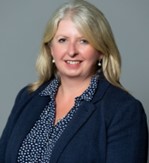
Senior Director, User Interface, Global Device Development, Viatris, Inc.
Ms. Claire McDiarmid leads the Human Factors programs for Combination Products including Complex Generics at Viatris. Claire joined the organization in 2011 and has over 25 years of experience in Drug Product Development with specific focus on drug delivery systems. Claire’s remit includes injectable, respiratory, ophthalmic, and transdermal products and her team delivered the Human Factors programs for Wixela lnhub® -the first generic Dry Powder Inhaler approved by FDA and Semglee® -first biosimilar Prefilled Insulin Pen approved by FDA. Claire holds a Bachelor degree in Chemistry and Environmental Science from the Universities of Kent, UK and Bergen, Norway and a Master’s degree in Environmental Management and Legislation from Brunel University, UK.
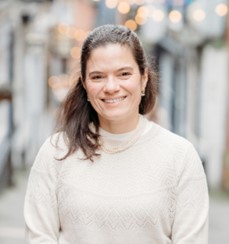
Human Factors Expert, Sandoz Device Development Centre
Dr. Tina Medeiros is a Human Factors Expert with a background in user research and user-centric design. She has a first degree in Industrial Design (Brazil), an M. Eng. From Chiba University (Japan) and received her Ph.D. from the University of Cambridge, UK. Her professional experience includes human factors roles in consultancies, where she was involved in and responsible for multiple drug-device combination product projects for the major pharma companies. Currently, Dr. Medeiros works at Sandoz Device Development Centre as a member of the User Interface team and provides HF support and guidance to several generic and biosimilar drug-device combination product projects, including inhalers, pen injectors, autoinjectors, and eye droppers. Her special interests lie in use-related risk reduction, and shaping the use process of a new product, for safe and optimal user experience. She is skilled in quantitative and qualitative methods, as well as designing and executing human factors evaluations within Medical Technologies – from simple formative studies to large, complex validation activities.

Human Factors R&D and Regulatory Strategy – Medical Devices & Combination Products, HFUX Research, LLC
Ms. Heidi Mehrzad is the founder of HFUX Research, LLC, a human factors and usability consultancy specializing in medical device, digital health, and combination product development. With a cross-disciplinary background as a trained pilot, emergency medical technician, software analyst, and human factors expert, her early career spanned the arts, banking, and aviation – shaping a perspective that blends creative thinking with scientific precision. This interdisciplinary foundation continues to inform her ability to approach medical product development with both analytical rigor and inventive insight. She is also the creator, producer, and host of Safe and Effective, a podcast focused on medical human factors and usability in practice, where she explores the real-world challenges of designing safe, usable technologies – through candid conversations with experts, regulators, and frontline professionals shaping the future of healthcare innovation.
Her work centers on advancing early integration of human factors into R&D, developing hybrid usability and clinical studies, and driving innovation in risk analysis methodology and statistical modeling for human factors summative validation evaluations. Heidi’s regulatory expertise spans FDA and TUV submissions, IEC 62366, ISO 14971, EU MDR, HE75 and drug-device combination product requirements. Her research contributions include pioneering alternatives to traditional comparative human factors study designs, including non-inferiority modeling for therapeutic equivalence.
Heidi’s device portfolio encompasses drug delivery systems, ophthalmic and respiratory technologies, endoscopy and reconstitution devices, implantables, computer-aided surgical systems, diagnostic imaging, neuromodulation, ultrasound-guided technologies, and robotic platforms. She holds patents in GUI design for surgical imaging and navigation software, and her multilingual, global experience includes leadership roles across the U.S., Germany, Switzerland, and Luxembourg.
She earned her B.S. in Aeronautics and M.S. in Human Factors and Systems from ERAU and holds technical degrees in Information Technology Management and Emergency Medical Services from SHU and DSC, respectively.

Combination Product and Medical Expert, Hikma Pharmaceuticals Inc.
Ms. Kalpita Mehta is an engineering, Regulatory, and Quality Management professional and medical device professional, she plays a critical role in developing and launching complex pharmaceutical and drug-device combination drug products for multiple therapeutic uses. Billions of people worldwide have benefitted from her contributions involving in-vitro diagnostic products, such as the launch of COVID-19 testing kits during the pandemic, combating opioid overdose, surgical products such as wheelchairs, and other medicinal devices that alleviate upper respiratory and gastrointestinal symptoms and other critical disease states, among many other medications and products.
Kalpita additionally applies her significant experience in ISO standards for Medical Devices, Risk Management, and Lifecycle Management to promoting public safety by ensuring end-to-end quality and product compliance with the U.S. Food and Drug Administration (USFDA). Among her numerous professional licenses and certifications, she is an ASQ Certified Manager of Quality/Organizational Excellence, an ASQ Certified Quality Engineer, an ASQ Certified Quality Improvement Associate, a Six Sigma Greenbelt, and the Global Exemplar Lead Auditor for ISO 13485:2016.
Kalpita is a registered pharmacist degree from India and earned a master’s degree in biotechnology entrepreneurship from Case Western Reserve University. She is a member of the Regulatory Affairs Professionals Society (RAPS) and serves as a participant on the CoP Combination Products for the International Society for Pharmaceutical Engineering (ISPE) focused on engaging industry leaders to discuss hot topics unique to combination products. Kalpita also serves as a Volunteer Drug Device Combination Product Expert Advisor to the United States Pharmacopoeia (USP) sub- committee, a nonprofit organization that sets quality standards for medicines and other healthcare products in the U.S.

Principal Human Factors Engineering Advisor, Human Ability Designs, LLC
Ms. Melissa Lemke is the Principal Human Factors Engineering Advisor with Human Ability Designs, a human factors firm that supports FDA and global human factors regulatory success with clients seeking to optimize user interface designs. Since 2003, Melissa has achieved 100% first-time human factors regulatory clearance/approval of medical products with hundreds of clients by applying and teaching the science of human factors engineering within regulated medical product design. Melissa innovates scalable solutions to meet human factors requirements throughout the pre-market and post-market design process. She brings decades of practitioner experience and industry leadership in use-related risk management, user-centered design for products used in clinical and non-clinical environments, and training and mentorship of emerging human factors professionals working to develop and bring to market medical products that are safe, effective, and usable for people of all abilities. Melissa participates in standards development, teaches human factors at the University level and with AAMI, and routinely publishes her scientific contributions, including within Applied Human Factors in Medical Device Design (2019) and Development of Biopharmaceutical Drug-Device Products (2020). She is working to improve the HF process for generic drug products, including with participation in an FDA sponsored grant, Development of a Combination Product Taxonomy and Comparative Human Factors Testing Method for Drug-Device Combination Products Submitted in an ANDA (2021-2024).
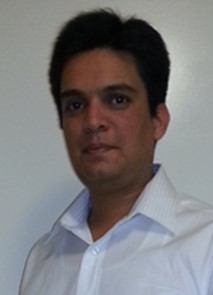
Associate Professor, The University of Queensland; Chair, American Association of Pharmaceutical Sciences, Topical Transdermal Community (TTC)
Dr. Yousuf Mohammed is a research leader at The University of Queensland. He has been working within the field of cosmetic dermatology, sensory perceptions, skin delivery, novel technologies and drug-devices combination products, microneedles and nanomaterials and has contributed significantly to the field with over 100 high impact publications, book chapters and over 45 invited conference presentations. He is presently the Chair of the American Association of Pharmaceutical Scientist’s Topical Transdermal committee and an invited expert on several panels. In the recent years, his work has led to more than 80 regulatory guidances and guidelines to develop topical and transdermal products. His collaborations with the industry, academia and regulators have produced potential novel technologies, products and product characterization methods that are positioned for successful translation.
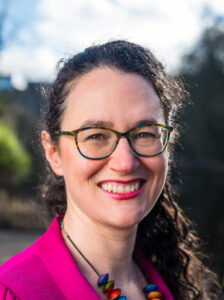
Technical Director, medHF
Ms. Miranda Newbery is the Technical Director at medHF. With over 20 years of experience in human factors engineering of medical devices and combination products working for some of the world’s leading manufacturers and consultancies, Miranda brings a wealth of knowledge to the human factors process.
Miranda Newbery is a Fellow of the Chartered Institute of Ergonomics and Human Factors, holds an MEng in Mechanical Engineering from Cambridge University and an MA in Industrial Design Engineering from the Royal College of Art and Imperial College, and worked as a Research Assistant at the Massachusetts Institute of Technology. Miranda has 20+ years of experience working with companies including TTP, PA Consulting, and ran Inspired Usability between 2017 and 2025.
medHF is a leading consultancy in Human Factors Engineering with a proven track record of having supported our clients to obtain more than 30 combination product approvals in recent years. Currently, medHF has 26 employees from bases in Switzerland, the UK, and the US. medHF operates an ISO13485:2016 certified quality management system and holds a Gold EcoVadis ESG rating.

Director, Human Factors and Regulatory Strategy, Kymanox
Ms. QuynhNhu Nguyen has 4+ years of consulting experience for human factors and regulatory strategies including the development of HF strategies and execution of overall HF and Usability Engineering Programs with global clients and global submissions with a focus on Combination Products and has supported successful HF data for 10 FDA submissions covering different types of drug-device combination products covering a variety of delivery devices including transdermal patch, autoinjectors, prefilled syringes, vial + syringe kitted combination product, complex subcutaneous infusion system, and on-body delivery system. She has 15+ years of FDA regulatory science and evaluation experience with human factors, medication errors, product design and development that can be applied across various medical products development processes and strategic milestones.
She led CDRH’s human factors reviews on 444 medical products that have both device and drug/biologic constituents (also known as combination products), and on 244 Human Factors/device usability expertise consultative reviews for a variety of premarket submissions received in CDRH; co-led the development of human factors program in DMEPA CDER from conception to current state by ensuring adequate staff, resources, and tools to perform CDER regulatory reviews of human factors submissions. Coordinated staff of 50+ members of varied backgrounds and varied levels of understanding of human factors engineering process to acquire the necessary skillsets and are trained in performing evaluations for human factors submissions. Ensured consistent human factors evaluations taking into considerations scientific and regulatory landscape cross 500+ products that cover all therapeutic areas beginning from investigational product development phases to marketing applications to postmarket extension phases.
Ms. Nguyen has a Master of Science Degree in Systems Engineering from Johns Hopkins University and Bachelor’s Degree in Biomedical Engineering from George Washington University.
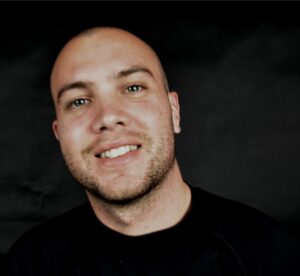
Principal Usability Specialist, Novo Nordisk
Dr. Horacio Pace-Bedetti holds a Ph.D. in Healthcare Technology (Human Factors and Ergonomics), an M.Sc. in Design Engineering, and a B.Sc. in Industrial Design Engineering and Product Development from the Universitat Politècnica de València. He is a human factors and usability engineering leader with over a decade of experience in the design and development of medical devices and combination products.
Upon leaving academia, he began his industry career as a Senior Engineer in Human Factors and Risk Management at Biogen before joining Novo Nordisk in November 2021. At Novo Nordisk, he currently serves as Principal Usability Specialist, mentoring human factors professionals, overseeing regulatory submissions (NDA, BLA, 510(k), Technical Files), and developing platformbased usability models to accelerate variant approval timelines.
Beyond his leadership in the industry, Horacio plays a significant role in shaping usability standards and regulatory practices globally. He is a committee member of the AAMI Human Factors Standards Committee (IEC 62366, ANSI/AAMI HE75), the BioPhorum HF group, and the Combination Products Coalition Human Factors Working Group, collaborating directly with the FDA on policy. Additionally, he serves as an editor for the Journal of Human Factors in Healthcare, applying his expertise to advance usercentric design strategies across the medical device ecosystem.
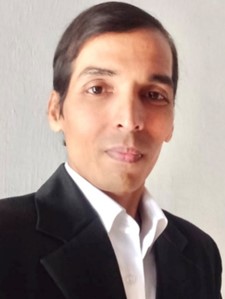
Founder and CEO, InnDevice™ Research
Mr. Satyashodhan Patil is founder of InnDevice™ Research firm. He is guiding various medical device and pharma companies on drug delivery device development through InnDevice™ Research. He is leading to set up device R&D and train resources responsible for end to end medical device development from conceptualization to commercialization through development, design verification, design validation studies such as stability, clinical, bio-compatibility, human factors and also supporting PLM activities. He is working for the development of several types of medical devices for several therapeutic uses for drug-device combination products (DDCP) such as pen injectors, auto injectors, applicators, Prefilled Syringes (PFS), implant injectors, ophthalmic devices, nasal sprays and inhalers.
He has unique and pioneering experience working with Sun Pharmaceutical Industries Limited in R&D centre and was instrumental in successful development of various types of best in-class patient-centric drug delivery devices with implementing regulatory guidance (USFDA 21 CFR, EU MDR, MHRA, TGA, HC) and ISO standards for global market. He authored Sun Pharma’s Global Quality Standards, Global Standard Operating Procedures and Global Policy for Medical Devices and also implemented mechanical design engineering best practices to DDCP space. He trained cross functional teams at several manufacturing sites and also led communications with several regulatory agencies for devices.
He is pioneer in bringing and implementing Design History File (DHF) concept to Drug-Device Combination Products in Indian Pharma Industry. He is also pioneer in successfully developing patient-centric medical devices for generic drug-device combination products for India and global market. He led device development of several world’s first and world’s best patient-centric (based on sales data) drug delivery devices for DDCPs with Sun Pharma.
He also worked with Johnson and Johnson Medical and GE Healthcare in their R&D centres. He comes with 17+ years of experience in medical device development.
Satyashodhan is graduated in Mechanical Engineering with College 1st and University 4th rank from SRTM University, Maharashtra and also completed certificate course in Medical Device Development from Stanford University’s Centre at All India Institute of Medical Sciences, New Delhi.
He has several patents to his credit. His purpose is to research and revolutionize best in class patient-centric medical devices.
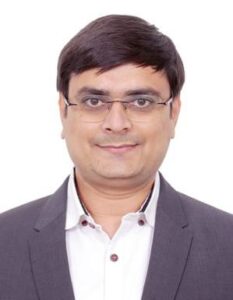
Co-Founder and Chief Technology Officer, Cutyx Research LLP
Dr. Dhaval Pethani is a seasoned professional with over 14 years of expertise in the formulation and process development of novel drug delivery systems, specializing in transdermal patches, oral films, and topical products. With a proven track record in regulated pharmaceutical markets such as the USA and Europe, Dr. Dhaval has demonstrated exceptional proficiency in developing a wide array of dosage forms and drug device combination products, including transdermal patches, gels, creams, lotions, ointments, solutions, and vaginal rings for both ANDA and NDA 505(b)(2) projects.
Dr. Dhaval Pethani is a Co-Founder and Chief Technology Officer at Cutyx Research LLP, Ahmedabad, India. Before establishing Cutyx, Dhaval held key leadership roles at renowned organizations such as Zydus Life Sciences, Alkem Laboratories and Encube Ethicals, where he managed teams of proficient scientists dedicated to the development of Transdermal patches, oral films and Topical products. Also, Dr. Dhaval is a proud member of the Expert Committee, Center for Research on Complex Generics – USFDA.
Dr. Dhaval has been pivotal in driving projects from concept to commercialization, ensuring successful development and market introduction of various drug delivery systems across the USA, Europe, and Canada. Dr. Dhaval excels in both early and late-stage product development, encompassing literature review, pre-formulation studies, formulation and process development, clinical study batches, scale-up, cleaning validation, process validation, technology transfer, and regulatory response drafting.
Dr. Dhaval is adept at identifying formulation strategies to expedite development timelines and is well-versed in quality by design (QbD) methodologies, design of experiments (DOE) software, and special product characterization studies. His thorough understanding of USFDA guidance and the regulatory approval process has been instrumental in achieving successful product approvals.
With extensive experience in designing and validating cleaning procedures for manufacturing equipment, Dr. Dhaval ensures compliance with regulatory requirements and patient safety standards. His expertise spans various packaging solutions, including metered dose pumps, tubes, jars, sachets, pouches, rectal and vaginal applicators, dosing cards, plastic and glass bottles, and brush applicators. He possesses a strong understanding of drug-device combination product requirements as per US FDA guidelines.
An organized, highly motivated, and detail-oriented problem solver, Dr. Dhaval has formulated and implemented SOPs and guidelines for new product acceptance, risk assessment as per ICH and transfer. He has faced audits and pre-approval inspections from agencies such as the USFDA, local FDA, and ISO, demonstrating his capability to navigate stringent regulatory environments. Additionally, Dr. Dhaval has prepared R&D budgets, including OpEx and CapEx, for new products, facilities, and instruments.
A strong advocate for cost-consciousness and efficiency, Dr. Dhaval embraces new technologies to improve product quality and development processes. He has also been involved in new equipment design, factory acceptance testing (FAT), and machine qualifications, demonstrating his comprehensive technical acumen.
Dhaval earned his Doctorate in Pharmaceutical Sciences and a Master’s degree in Pharmaceutics and Pharmaceutical Technology from L.M. College of Pharmacy, Ahmedabad, India.

Co-Chair & Faculty, Association for the Advancement of Medical Instrumentation Human Engineering Committee; Professor, Department of Biomedical Engineering, University of Cincinnati; US-UK Fulbright Scholar; Principal, Design & Human Factors, Know Why Design LLC & Sentiar; Honorary Faculty, University of Nottingham
Dr. Mary Beth Privitera, M.Design, FIDSA, is a Professor at the University of Cincinnati’s Department of Biomedical Engineering and works collaboratively among the Colleges of Medicine, Engineering and Design. She is Principal of Design & Human Factors for Sentiar, a medical device company specializing in augmented reality devices guiding physicians during cardiac ablation procedures with an interactive, real-time, 3D interface as well as a consultant to the medical device industry through Know Why Design, LLC. Additionally, she serves as faculty and co-chair of the Association for the Advancement of Medical Instrumentation’s Human Engineering Committee.
She has worked professionally as a consultant to the medical device industry for over 30 years on devices which are intended for use across the practice of medicine and intended for home use. Her current research focuses on applied ergonomics and design interpretation. She has conducted contextual inquiry studies internationally with results intended to inform the design. She has been involved in the development of surgical tools, diagnostic equipment, combination products, software as medical device, clinical decision support software, as well as intraprocedural augmented reality. Her research funding has been supported by NIH, the Gates Foundation and FDA CDER Division.
She has authored many peer reviewed articles and books titled “Contextual Inquiry for Medical Device Design,” promoting best practices for phase zero medical device development. Her 2nd book, edited and written in collaboration with AAMI Human Factors faculty is titled “Applied Human Factors in Medical Device Design.” This book aims at bringing all references and best practices together in one resource compendium. Her current efforts include preparing the 2nd edition of this book intended for publication in 2026.

Project Director, PT Sanbe Farma, Indonesia
Mr. Devang Purohit holds a Master’s in Pharmaceutical Technology from The M.S. University of Baroda and a postgraduate diploma in Human Resources Management. He is a dynamic and results-driven pharmaceutical professional with 19+ years of experience in R&D of complex generics, with a core focus on OINDPs (Respiratory – Nasal and Inhalation), parenterals, and topicals. Currently serving as Project Director – Respiratory, leading high-impact development programs from concept to commercialization.
His career spans from reputed pharma organizations like Sun Pharma, Lupin, Ranbaxy, Alkem, and Macleods. Proven expertise in inhalation product development, Method development and validation, analytical technical transfer, and regulatory strategy, with a strong background in metered dose inhalers (MDIs), dry powder inhalers (DPIs), nasal sprays, and nebulizers.
His track record of success in implementing risk-based, QbD-driven approaches to ensure robust product design and faster development timelines. He has spearheaded initiatives to automate in vitro testing platforms and led FDA-compliant In vitro BE study transfers and led new complex PSG in vitro studies such as in vitro lung dose with dissolution. He is well-versed in drug-device combination development, including design control, FMEA-Risk controls such as dFMEA pFMEA, uFMEA, design verification/validation, human factor studies, and regulatory documentation for US, Canada, South Africa, CIS, and APAC markets.
Mr. Purohit has delivered numerous successful regulatory filings and commercial product launches. In addition, he has extensive experience in early and late-phase clinical studies, including Pilot & Pivotal PK/CT trials. Adept at strategic planning, technical leadership, and cross-functional coordination.

CMC Consultant, Pharma Modus LLC
Dr. Radhika Rajagopalan is an active CMC consultant assisting many small and medium size pharmaceutical companies with submission strategies to the FDA-CDER offices (both New and Generic Drugs, and includes devices). In addition, she supports filing Type II, III, and IV drug master file submissions and supplemental applications to the FDA. She serves in the USP Small Molecules Expert Working Group 3 as a volunteer (2020-2025 cycle).
Radhika worked for FDA, Center for Drug Evaluation and Research for ~ 24 years in various capacities. She had served as an Expert Reviewer, held both Team Leader position and interdisciplinary position with in Office of Pharmaceutical Quality (OPQ) – policy office from Life Cycle Products, during the development and implementation of ANDA stability Guidance and as a Special Assistant to the Chemistry Director. She has delivered five (5) FDA guidance(s) during her tenure; hired and mentored scores of reviewers with in CDER OPQ. Prior to FDA, she spent 7 years with the Pharma R & D having worked for both Warner Lambert – Parke Davis division, as well as Bristol Myers Squibb. She has contributed to writing portions of IND, Supplements, and Phase 3 stages and worked under GMP. Her experience over the years covers Rx, and Rx to OTC switches.
Radhika has a Ph.D. in Organic Chemistry from Oklahoma State University and has completed post- doctoral research from the University of Kansas, Lawrence in Bioanalytical Chemistry.

Human Factors and Ergonomics Engineer, Teva Pharmaceuticals
Mr. Colin Roscoe is a Human Factors and Ergonomics Engineer with over 12 years of experience in the pharmaceutical, automotive, and rail sectors. As Principal Human Factors Engineer at Teva Pharmaceuticals, he leads development projects, ensuring compliance with global regulations and best practices.
Colin excels in solving Human Factors challenges in large international projects, enhancing user experience, and improving health and safety in manufacturing environments. He completed a Comparative Use Human Factors Study for a Drug Device Combination Product, demonstrating his ability to navigate scientific and regulatory challenges.
Before joining Teva, Colin applied his Human Factors knowledge at Bombardier, where he ensured vehicle and subsystem compliance with contractual, legal, and technical standards. He also managed Human Factors risks in car production at Ford, developing pragmatic solutions for international implementation. He is passionate about mentoring and developing others in the field, having led teams and provided technical support.
Colin holds a B.Sc. in Ergonomics from Loughborough University and has research experience at Abertay University. He has published research in the journal Contemporary Ergonomics and has presented his findings at various academic forums.
Colin continues to drive innovation in Human Factors Engineering, contributing to the pharmaceutical industry.
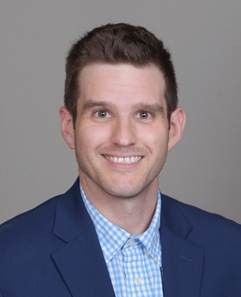
Senior Human Factors Consultant, Krayton Innovations LLC
Mr. Clayton Smith is a Sr. Human Factors Consultant at Krayton Innovations LLC, where he leads project efforts in human factors engineering for medical device and combination products. He has 10+ years of experience in the medical products industry that includes product development, manufacturing, and human factors research. Over the course of his career, he has conducted hundreds of human factors study sessions for a wide range of products including autoinjectors, prefilled syringes, infusion systems, nasal sprays, multi-dose pens, ophthalmic products, and various medical devices. Prior to Krayton Innovations, Clayton held roles in human factors, product development, and quality at Agilis Consulting Group (Kymanox), Abbott Labs, and Alcon. He holds a B.S. and M.Eng. in Biomedical Engineering from Texas A&M University.
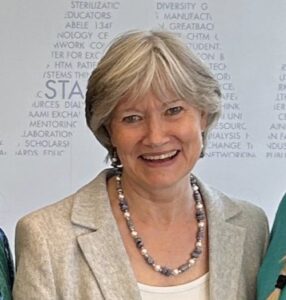
Owner/Principal, Human Spectrum Design, LLC
Dr. Molly Follette Story is the Owner/Principal of Human Spectrum Design, LLC, which provides human factors engineering consulting services for medical devices. She was formerly Head of Global Usability Engineering and Risk Management in Sanofi’s Medical Device Development unit. Before joining Sanofi, Story was Human Factors and Accessible Medical Technology Specialist at the U.S. Food and Drug Administration, Center for Devices and Radiological Health, Office of Device Evaluation, where she had an appointment to the Senior Biomedical Research Service. Story is Co-chair of the Association for the Advancement of Medical Instrumentation’s Human Factors Engineering Committee. Story received a BSE from Princeton University, a M.S. from Stanford University, and a M.S. and a Ph.D. from the School of Public Health at University of California, Berkeley.
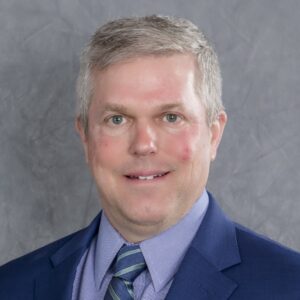
Principal Engineer, Device Development, Hikma Pharmaceuticals
Dr. Robert Tucker is a Principal Engineer, Device Development at Hikma Pharmaceuticals, where he manages product development and design review for generic nasal spray and inhalation drug devices. He has a bachelor’s degree from Tulane University, a master’s degree from The Johns Hopkins University, and a Ph.D. from Case Western Reserve University, all in Biomedical Engineering. Dr. Tucker has more than 20 years of experience researching, developing, and filing biomedical devices in the US and worldwide and is an inventor on more than 40 patents.

Senior Human Factors Manager, Science and Evidence Department, Ypsomed
Mr. Christian Schmid is Senior Human Factors Manager in the Science and Evidence Department at Ypsomed. He joined Ypsomed in 2020 following six years at Gerresheimer and brings more than 10 years of experience in Human Factors and Usability Engineering. His areas of specialization include usability engineering, ergonomics, user experience, user interface design, and product development for medical devices and drug-device combination products. He has led human factors activities in international development projects with leading pharmaceutical companies, contributing to the design and evaluation of pen injectors, patch injectors, connected devices, and insulin pumps. His work aligns with the expert committee’s mission to establish methods for evaluating human factors, device operability, and user interface design in the context of demonstrating equivalence of generic drug-device combination products (DDCPs). Christian holds a Bachelor of Arts in Industrial Design from the University of Applied Sciences and Arts Northwestern Switzerland (FHNW) and a Certificate of Advanced Studies in Requirements Engineering.

Director, Core Human Factors, Inc., A Rimkus Company
Dr. Jennifer Soosaar is the Director of Core Human Factors, Inc., where she manages a team conducting all aspects of healthcare human factors research. Jennifer supports the development of safe and effective medical devices, combination products, and healthcare systems for a large variety of clients. Jennifer also designs comparative analyses of user interfaces and conducts comparative-use human factors studies for industry.
Jennifer is currently serving on the Association for the Advancement of Medical Instrumentation (AAMI) human factors engineering committee and on the United States National Committee (USNC) of the International Electrotechnical Commission (IEC) for the medical devices usability committee. Jennifer has a Ph.D. in Molecular, Cellular, and Developmental Biology from Yale University and a bachelor’s in biology from the University of Virginia.

Human Factors Practice Leader, Core Human Factors Inc.
Ms. Samantha Sye is a Human Factors Practice Leader at Core Human Factors Inc., A Rimkus Company, based in Philadelphia, PA. She holds a Masters in Computer and Information Technology (MCIT), as well as a B.A. History and B.S. Behavioral Economics from the University of Pennsylvania.
Samantha specializes in human factors (HF) research for medical devices and combination products. She has extensive experience managing, teaching, designing, conducting and analyzing HF research for products in the healthcare domain. She works on devices spanning a wide variety of indications, user populations and device types. Samantha has a particular interest in comparative use HF studies and other tools to support bringing complex generics to market.

Professor, Respiratory Medicine and Consultant Physician, National Heart and Lung Institute (NHLI); Imperial College London (ICL); Royal Brompton Hospital; St. Mary’s Hospital London
Dr. Omar Usmani is Professor of Respiratory Medicine and Consultant Physician at the National Heart and Lung Institute (NHLI), Imperial College London (ICL), Royal Brompton Hospital and St Mary’s Hospital London.
He is an International Authority on Aerosol Science and Inhalation Medicine whose research has fundamentally changed the understanding of therapeutic aerosol deposition and clinical effectiveness in inhaled drug delivery to the lungs.
He received the 2005 NHLI Imperial College Ph.D. Prize for the Best Thesis ‘Assessing the Lung Deposition and Clinical Response in Asthmatic Subjects as a Function of Beta-adrenergic Aerosol Particle Size’.
In 2015, he was awarded the Thomas T Mercer Award recognising his International Research Excellence in Pharmaceutical Aerosols and Inhalable Materials. In 2019, he was awarded Fellowship of the European Respiratory Society (FERS).
He is currently President of the International Society of Aerosols in Medicine (ISAM) for 2023-2025 and is ERS Science Council Chair elect and will hold office 2025-2028. He was Head of ERS Assembly 5 (Asthma, COPD, Cough) (2020-2023) and Secretary of ERS Assembly 5 (2017-2020). He was Co-Chair of the ERS Taskforce on the Guidelines for the Diagnosis of Asthma in Adults (2022).
He has over 200 peer-reviewed publications (PubMed) in the world’s top journals in Aerosol Science (Journal Aerosol Medicine & Pulmonary Drug Delivery), and Respiratory Medicine (American Journal Respiratory & Critical Care Medicine) with >11,000 citations and h-index 57 (Google Scholar, May 2025).
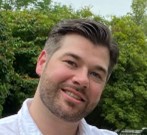
Senior Director, Regulatory Affairs I & Combination Products Liaison, Teva Pharmaceuticals USA, Inc.
Mr. Brandon Wood is a Senior Director, Regulatory Affairs I & Combination Products Liaison for Teva Pharmaceuticals USA, Inc. In this role Brandon leads a group of regulatory professionals and oversees the filing of applications for generic parenteral products. He specializes in the development of generic applications for complex products such as peptides, oligonucleotides, iron colloids, long-acting injectables, and drug-device combination products. As the combination products liaison Brandon provides consultation on applications for drug-device combination products, mentors and trains staff on drug-device combination product regulatory requirements, provides representation in cross-functional initiatives and strategy discussions specific to drug-device combination products, and communicates current affairs and trends in the drug-device combination product space to relevant departments within his organization. Brandon has been a regulatory professional for 12+ years and prior to joining Teva in 2018 served various regulatory and quality assurance R&D positions for CorePharma and Impax Laboratories working on both sterile and non-sterile products. Before starting his regulatory career Brandon worked as a chemist for West-Ward Pharmaceuticals supporting raw material and bulk release activities, analytical research projects, data review, and investigative writing. Brandon has a B.Sc. in Chemistry from Monmouth University (West Long Branch, NJ) with a specific concentration in Organic Chemistry.